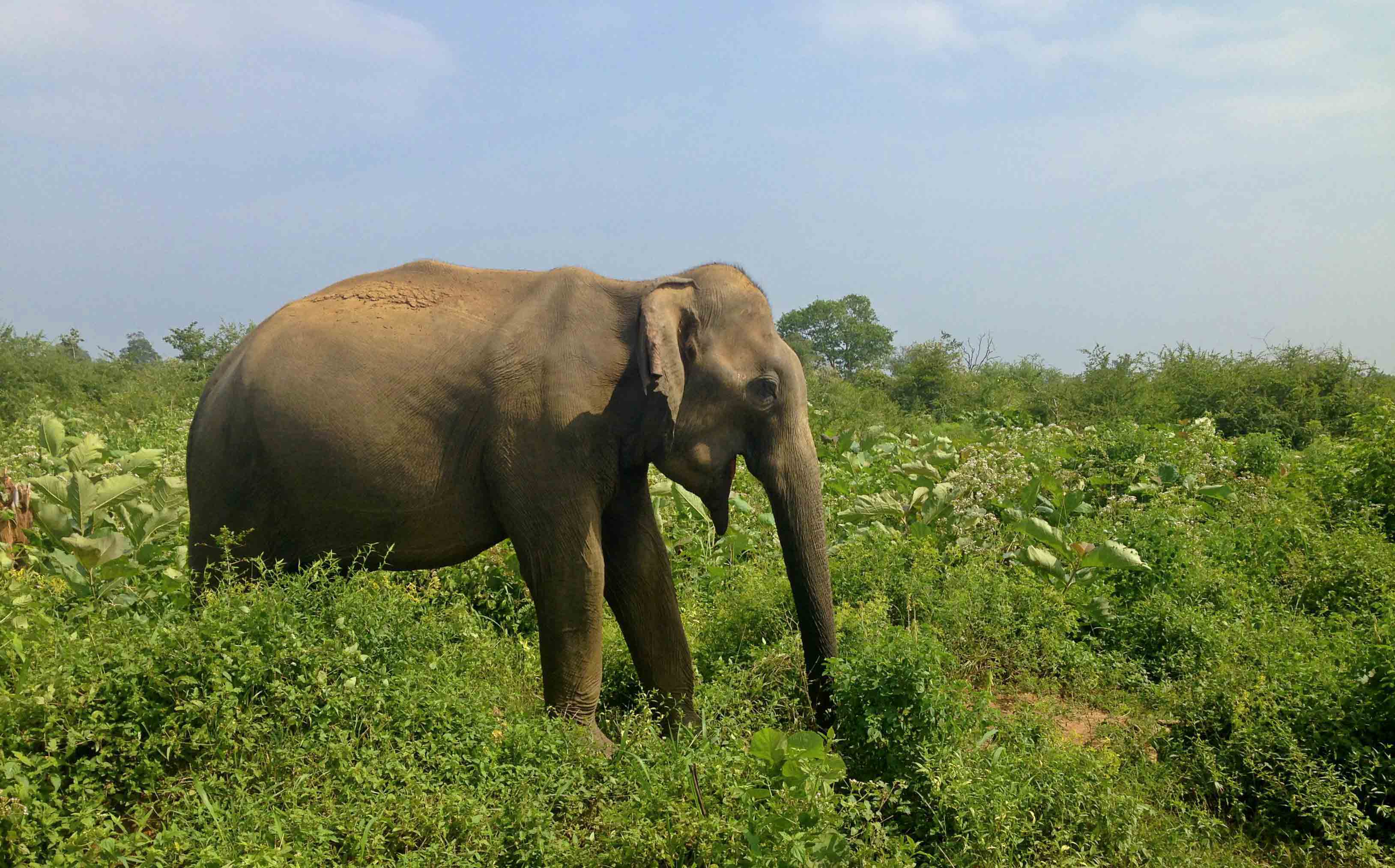Book Udawalawe safari

The Udawalawa national park was established on 30 th July 1972.It lies in the lower catchment of Udawalawa Reservoir in the country’s Intermediate Lowland region. This area falls into two administrative districts in two provinces. The parkland on the right bank of Walawe ganga is within Ratnapura district in the province of sabaragamuwa and the parkland on the left bank falls within Moneragala district in the province of Uva . This Park is located approximately between the latitudes 6 25’E and 6 35′ N and longitudes 80 45’N and 81 00′ E.
The dry land area of the Park is about 119 Sq miles or 308 Sqm, approximately 28910ha. The Udawalalawa reservoir is situated within the park premises, the total surface area of which at full supply is 3405ha. The total area of the park within the declared boundary including the reservoir is 32,315ha.
Udawalawe is undoubtedly the best place in Sri Lanka to see wild Asian Elephants throughout the year: there are about 500 elephants in the park and they often roam in herds of up to 100. Udawalawe National Park is unique in terms of consistency in numbers of elephants roaming the park: it has no a seasonal variation in herds of elephants. The best hours to visit the park are in the mornings and evenings. Late evening also affords the photographic opportunities in the backdrop of loveliest sunsets.
Other than the elephants, the national park provides home for many other species of mammals such as the rusty-spotted cat, fishing cat, Sri Lankan leopard etc. The Sri Lankan sloth bear is rarely seen in Udawalawa national park. Sri Lankan sambar deer, Sri Lankan axis deer, Indian muntjac, Sri Lankan spotted chevrotain, wild boar and water buffalo are among other mammal species that could be seen. Golden jackal, Asian palm civet, Toque macaque, Tufted grey langur and Indian hare also reside in the park. The endemic Ceylon spiny mouse was also recorded in Udawalawe national park in 1989.
Udawalawe sanctuary is also known as a good bird watching site in Sri Lanka. Bird lovers would get a wonderful opportunity to observe many different varieties of birds including endemic species and migrants as well. Endemic birds such as Sri Lanka Spurfowl, Red-faced Malkoha, Sri Lanka Grey Hornbill and Brown-capped babbler are among the birds found in Udawalawa national park. The reservoir attracts a huge variety of water birds such a cormorants, the Spot-billed pelican, Asian open-bill, Painted stork, Black-headed ibis and Eurasian spoonbill.
Moreover, the open parkland attracts birds of prey such as White-bellied sea eagle, Crested serpent-eagle, Grey-headed fish eagle, Booted eagle, and Changeable hawk-eagle. For the visitors, driving through the park in a 4WD safari jeep is the only permitted way of observing the Udawalawe national park. A half day or full day jeep safari in the Udawalawa national park would certainly become an unfading memory in your life. Explore the wonders of Sri Lanka wild life while gaining an unique experience with a touch of adventure.
Udawalawe National Park – tourist info for Book Udawalawe safari; is an excellent destination to see elephants, with herds of 50 to 60 individuals regularly seen and game drives are in open-top jeeps and accompanied by local wildlife guides.
The Sri Lankan elephant, a distinct sub-species of the mainland Asian elephant of India and Thailand, is the easiest to see. Its gentle demeanor and indomitable size has made this gentle giant a much-loved wildlife icon the world over.
Although as many as 10,000 elephant roamed Sri Lanka at the turn of the century, only some 5,000 live in the wild today. This is largely to the ‘Human Elephant Conflict’ (HEC) that leads to the death of 150-200 elephants each year, causing its classification as an endangered species.
Besides elephant, other mammal species in the park include, sambar, chital and wild boar. Dry zone birdlife includes greyheaded fish eagle, black-shouldered kite, changeable hawk eagle, crested serpent eagle, white-bellied sea eagle, shikra, common kestrel, brown fish owl and western marsh harrier.
Tags: Safari, Sri Lanka, Udawalawe national park